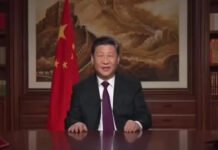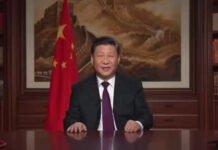The International Monetary Fund (IMF) has issued a stern warning to the global community: rising U.S.–China tensions could pose serious risks to global economic growth if left unchecked. Speaking at the IMF–World Bank Annual Meetings 2025, Managing Director Kristalina Georgieva emphasized the urgent need for both nations to de-escalate trade and geopolitical conflicts, highlighting the ripple effects such tensions have on emerging markets and international financial stability.
“The world economy is at a delicate juncture. Any sustained escalation between the United States and China could significantly hinder growth, disrupt trade, and heighten financial volatility,” Georgieva stated.
The Context of Rising Tensions
U.S.–China relations have become increasingly strained due to trade disputes, technology restrictions, and geopolitical conflicts in key regions like the South China Sea and Taiwan Strait. These tensions have already contributed to slower global trade, fluctuating currency markets, and cautious investor sentiment.
Economists warn that prolonged disputes between the world’s two largest economies could reduce global GDP growth by up to 0.5%, a significant hit for already fragile post-pandemic recovery efforts.
Global finance analyst Rajesh Malhotra explained, “U.S.–China trade tensions are not just bilateral issues. They have a cascading effect on supply chains, commodity prices, and capital flows worldwide.”
IMF Recommendations
The IMF has called for dialogue, negotiation, and structured trade agreements to prevent further disruptions. Georgieva stressed that both nations must prioritize cooperation over confrontation, particularly in areas such as:
Global supply chains – Ensuring essential goods move without disruption.
Technology transfer and intellectual property – Creating predictable rules for companies in both countries.
Financial market stability – Avoiding abrupt regulatory changes that could trigger capital flight.
“Markets need predictability. Businesses need clarity. Only through constructive engagement can we safeguard the global economy,” Georgieva added.
Impact on Emerging Markets
Emerging economies, including India, Brazil, and Southeast Asian nations, are particularly vulnerable to U.S.–China disputes. Rising tariffs, currency fluctuations, and disrupted exports can impact trade balances and inflation rates.
Dr. Suresh Nair, senior economist at the Global Policy Institute, commented, “Emerging markets are often the first to feel the heat from global tensions. Stability between the U.S. and China is critical for sustained growth in these regions.”
Market Reactions
Financial markets reacted cautiously to the IMF warning. Stock indices in Asia saw modest declines, while commodity prices, including crude oil and rare earth metals, experienced volatility. Investors are closely monitoring diplomatic signals from Washington and Beijing for any signs of de-escalation.
“The uncertainty affects investment decisions. Even slight improvements in U.S.–China relations could restore confidence and market stability,” noted financial strategist Richa Agarwal.
Geopolitical Considerations
Beyond trade, the IMF highlighted geopolitical risks associated with military tensions in the Asia-Pacific region. Conflicts, even if localized, could disrupt global shipping lanes, energy supplies, and international investments, amplifying economic repercussions worldwide.
“Peace and stability are not just political ideals; they are economic necessities,” Georgieva emphasized.
Looking Ahead
The IMF’s statement underscores the interconnectedness of global economies in an era of trade wars and geopolitical maneuvering. Policymakers, investors, and businesses are advised to prepare for volatility while advocating for diplomatic engagement.
For India and other emerging economies, the IMF’s call signals an urgent need to strengthen domestic markets, diversify trade partners, and build economic resilience against external shocks.
In conclusion, Kristalina Georgieva’s warning serves as a stark reminder: global economic stability depends not only on domestic policy but also on the ability of major powers to cooperate. As the U.S. and China navigate complex political and economic challenges, the world watches closely, knowing that the stakes are high for nations and businesses alike.
















